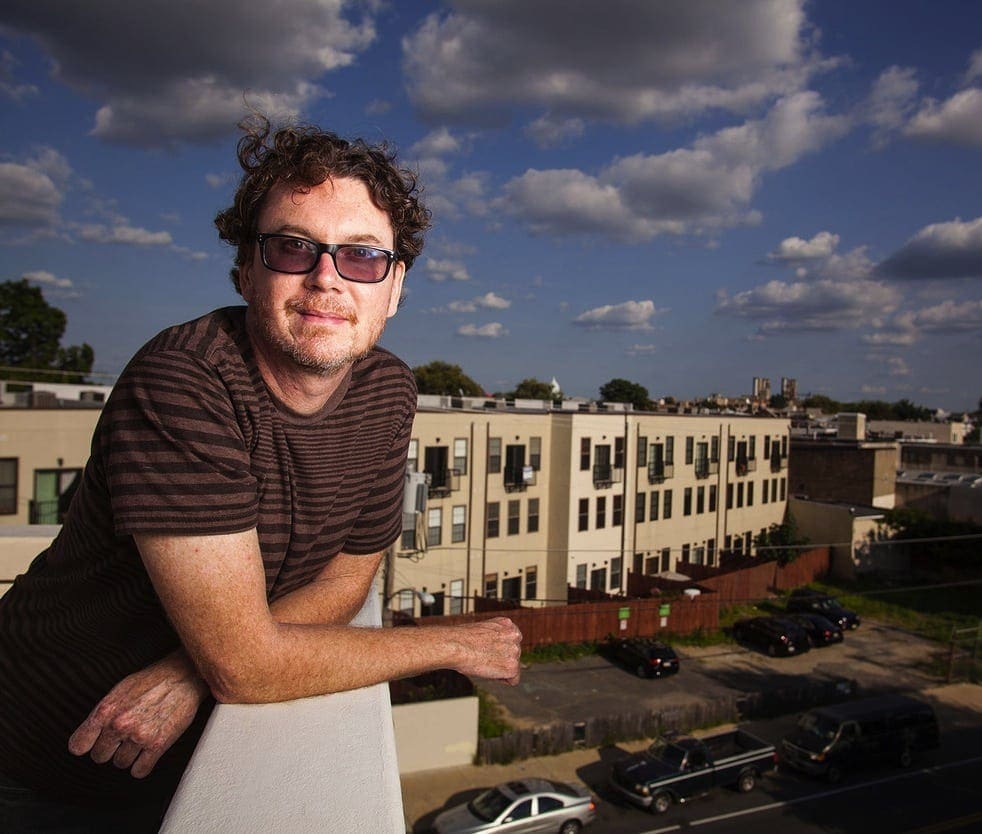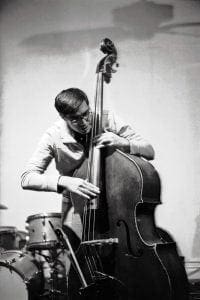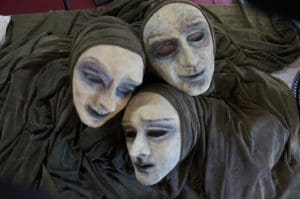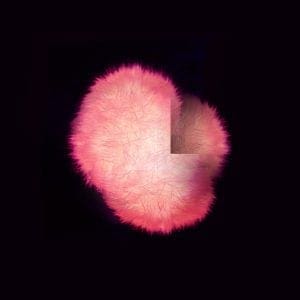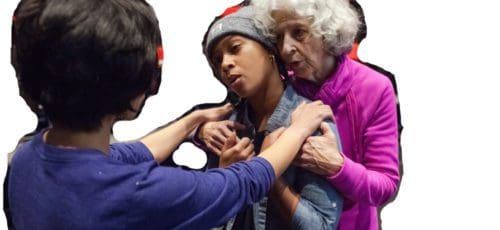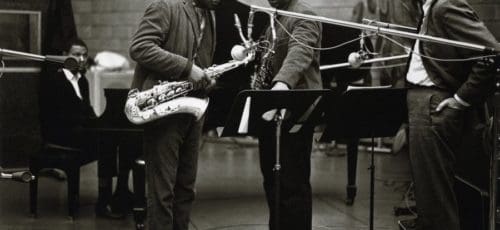Ambivalent Cosmic Matter: An Interview with Bhob Rainey
Bhob Rainey is an artist that should need no introduction, and yet, here we are. Over the course of the last two decades he has tirelessly pushed against established musical idioms—with consistently revelatory, mind-melting results—like few contemporaries. In the process he has collaborated with some of the most innovative composers and musicians working today, and even helped define the lowercase movement in non-idiomatic music with Nmperign, his seminal duo with Greg Kelley.
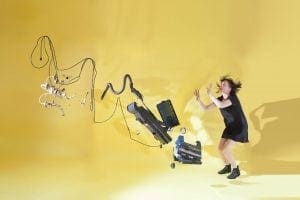 Though he has sought interdisciplinary collaborations throughout his career, his commitment to such projects has deepened as of late, particularly in his ongoing partnership with New Paradise Laboratories. This week sees the world premiere of NPL’s latest show Hello Blackout! and—as he did with the show’s predecessor O Monsters—Rainey has been composing original music essential to the development and execution of the piece. However, unlike last time around when the sublimely unsettling score was prerecorded and blasted through the theater, Rainey has drafted an ensemble of distinguished and versatile musicians—as comfortable in the world of classical music as they are in the deepest ends of the avant-garde—to help shape and execute his idiosyncratic vision. “We had this idea that it’d be fun to find musicians who could stimulate Bhob to even greater heights of sonic experimentation, so he has assembled a unique ensemble, a quintet,” NPL artistic director Whit MacLaughlin recently told the FringeArts Blog. “They’re some of the finest instrumentalists of alternative timbres in the world. I’ve been to the sessions and am always having my mind blown as this music comes together.”
Though he has sought interdisciplinary collaborations throughout his career, his commitment to such projects has deepened as of late, particularly in his ongoing partnership with New Paradise Laboratories. This week sees the world premiere of NPL’s latest show Hello Blackout! and—as he did with the show’s predecessor O Monsters—Rainey has been composing original music essential to the development and execution of the piece. However, unlike last time around when the sublimely unsettling score was prerecorded and blasted through the theater, Rainey has drafted an ensemble of distinguished and versatile musicians—as comfortable in the world of classical music as they are in the deepest ends of the avant-garde—to help shape and execute his idiosyncratic vision. “We had this idea that it’d be fun to find musicians who could stimulate Bhob to even greater heights of sonic experimentation, so he has assembled a unique ensemble, a quintet,” NPL artistic director Whit MacLaughlin recently told the FringeArts Blog. “They’re some of the finest instrumentalists of alternative timbres in the world. I’ve been to the sessions and am always having my mind blown as this music comes together.”
I spoke with Rainey last year ahead of the premiere of O Monsters, but seeing as his compositional approach has changed, I had to touch base to learn about the unprecedented sounds that engulf the Kissimmee family before, during, and after the Big Bang.
FringeArts: You crafted the music for O Monsters by harvesting data from various phenomena and translating those numbers into long, very compelling, very alien musical events. How has your compositional approach changed since then in order to fit the world of Hello Blackout?
Bhob Rainey: The data sonification from O Monsters was largely used to find “shapes” of events that, while they might have beneficial or catastrophic effects, exist in spite of us. A lot of that music was meant to be a confrontation with a world that is utterly ambivalent towards the people in it and that only happens to be hospitable by chance. Why not follow this thought a little further and say that this ambivalent cosmic matter is also us—our bodies, our consciousness? Part of the human experience, I think, is a struggle between what we strongly feel is our “self” and this ancestral, non-human dust that’s already operating by the time we get names and ideas and desires, etc.
The philosopher Emmanuel Levinas had a pretty succinct, everyday take on this nameless companion. Speaking of insomnia, he said, “I do not stay awake: It stays awake.” He’s not merely talking about “the unconscious.” He’s trying to capture an anonymous life that persists even in the basic matter that composes us. And while the “it” is not an ethical being, I think that any kind of large-scale, inter-being “goodness” involves an engagement with this non-personal part of our existence. The problem is, not only is it difficult to think clearly about what an engagement of this kind entails (without falling into some kind of dogmatism), it is also easy to get devastatingly lost in the process. So, if the music for O Monsters was largely oriented towards an ambivalent, sometimes sublime cosmos, my thoughts for Hello Blackout are directed towards how this cosmic matter plays out within us.
FringeArts: Unlike in O Monsters, musicians will be performing the score live for Hello Blackout. What has introducing this ensemble into the Kissimmee’s strange environment forced you to consider?
Bhob Rainey: For me, the most interesting challenge lies in dealing with the chaotic effects that emerge when you put what is essentially a contemporary chamber ensemble on the same visual plane as theatrical events. Neither completely assimilates the other. There is almost an analog to the personal / impersonal self idea, but the effects are too visceral (even if quietly so) to function as a metaphor. Both the music and the theater have to give way to each other, and the compromises are often strange.
FringeArts: Tell us a bit about the ensemble you’ve assembled.
Bhob Rainey: I was looking for instrumentation that could easily fit with the idea of a “classical chamber ensemble.” I like the sonorities that broadly fall within that category, and I felt that, even though I come from a world of basement noise shows, violas and cellos would have a more striking visual impact than “table full of stuff.” Still, I wanted the musicians to have a “table full of stuff” vocabulary that wasn’t too precious or domesticated. But, I also wanted them to have the rigor of classical training so that we could try some impossible things while working towards precision and repeatability.
It was a little bit of a tall order, but I knew and had worked with some people who fit the bill. I reached out to a few of them, one being James Ilgenfritz, who is now the bassist in the ensemble. He and trumpeter Peter Evans recommended others to me, including Leila Bordreuil, a cellist whose work I’d heard in mostly improvisational contexts. James and Leila were committed to the whole adventure and helped me find the rest of the ensemble, all of whom not only had the right and rare mix of abilities, but were also willing to let the process unfold in a speculative way.
So, in addition to James and Leila, we have Andie Springer (violin), Carrie Frey (viola), and Vasko Dukovski (alto, bass, and contrabass clarinets). They all have a formidable, virtuosic rawness that can easily turn shimmery and sonorous. And, though they hadn’t worked together prior to this project, there’s an uncanny, untamed blend between them.
FringeArts: What are some of the conversations you’re having with this ensemble as you rehearse?
Bhob Rainey: Some of the conversations are quite technical. I’ve written music that uses a 72- or 96-note octave, so we’ve spent a lot of time tuning. But we’ve also spent a lot of time working on the line between strong, individual voices and counterintuitive, non-human impulses. We’ve tried at times to be rigorously non-musical. I’ve been very concerned with making music that honors this particular group of people rather than treating them as interchangeable with other violinists, cellists, etc., while at the same time trying to give voice to the weird, impersonal, physical stuff that shows up looking like bodies and instruments. So, I’ve asked them to contribute a lot, and I’ve often taken those contributions and bent them ever-so-slightly to bring out the shadows.
FringeArts: You’ll also be performing in Hua Hua Zhang’s White Nights in this year’s Festival. How did that collaboration come about?
Bhob Rainey: Yes, and the music for that project is very different! Hua Hua has this ambitious plan that combines traditional ideas with utterly contemporary ones while also inviting specifically Eastern and Western influences. Last year, I collaborated with Jung Woong Kim on his piece SaltSoul, which included Korean instrumentalist, gamin. That piece was developed from rather diverse cultural and personal content, and a lot of the music and sound design involved some integration of my work with gamin’s. Hua Hua was introduced to this piece while it was in process, which led her to invite gamin and, later, me to work with her on White Nights.
FringeArts: Do you have any other projects in the works at the moment?
Bhob Rainey: An album of the music that went into O Monsters will be released right around the time of the festival. It’s on a label out of Barcelona called Anòmia, and it’s titled From null lands led, starrily. Also, late last year, in a fit of election and post-election dissonance, I made a piece of software called Peev that generates infinitely varying music in response to everyday things that you do on your computer. I’ve been working on a more complex successor to Peev that allows other artists to contribute at different levels of expertise. The working title is These are They, and the code is public (on GitHub). Plus, the code for Peev is going to be published in a book coming out on September 8th that collects contemporary scores with non-standard notation. It’s called Tonebook, and Leila also has a piece in it. I’m doing sound design for Opera Philadelphia’s Inaugural Gala (which takes place on September 14), again in collaboration with New Paradise Laboratories. And I’m doing sound design and some app development for a project that came out of the Excite Center at Drexel, War of the Worlds Philadelphia, which will happen on October 28th. Hua Hua’s White Nights will be performed in full in November at Asian Arts Initiative, and shortly afterwards in Taiwan. And, finally, for now, I’m working on a collaboration with composer Ernst Karel for the Erstwhile record label, which should be out early next year.
Hello Blackout!
New Paradise Laboratories
The Proscenium Theatre at The Drake
302 South Hicks Street
Sept 5–Sept 17
$29 (general)
$20.30 (member)
$15 (student + 25-and-under)
TICKETS + INFO
| | | ||| | | |
O Monsters (screening)
New Paradise Laboratories
The Proscenium Theatre at The Drake
302 South Hicks Street
Sept 9, 10, 16 + 17
$10 (general)
$7 (member)
TICKETS + INFO
Interview and introduction by Hugh Wilikofsky.
Photos: Colin Lenton (banner), Plate 3 (Photo of Hello Blackout!), Reuben Radding (Photo of James Ilgenfritz), Adam Danoff (Photo of White Nights puppets).

